 If you are a student or adult approaching
"A Midsummer Night's Dream", this site will help you
get started.
If you are a student or adult approaching
"A Midsummer Night's Dream", this site will help you
get started.
This website collects no information. If you e-mail me, neither your e-mail address nor any other information will ever be passed on to any third party, unless required by law. I have no sponsors and do not host paid advertisements. All external links are provided freely to sites that I believe my visitors will find helpful. This page was last modified April 1, 2010.
Warning: Some people have claimed that "A Midsummer Night's Dream" is full of "adult", "immoral", and/or "occult" content. I disagree strongly, but ultimately you need to decide for yourself. If you want something totally non-controversial, please leave now.
This day my oaths of drinking wine and going to plays are out, and so I do resolve to take a liberty to-day, and then to fall to them again. To the King's Theatre, where we saw "Midsummer's Night's Dream," which I had never seen before, nor shall ever again, for it is the most insipid ridiculous play that ever I saw in my life. I saw, I confess, some good dancing and some handsome women, which was all my pleasure.
You are always insane when you are in love.
-- Samuel Pepys, Diary, Sept. 29, 1662
-- Sigmund Freud
 If you are a student or adult approaching
"A Midsummer Night's Dream", this site will help you
get started.
If you are a student or adult approaching
"A Midsummer Night's Dream", this site will help you
get started.
Shakespeare's works are larger than anyone individual's ideas or knowledge. You'll need to bring your own experience -- especially of being in love -- to help you decide what it all means for you.
You probably already know a few things about the play.
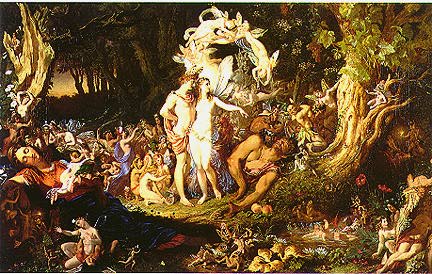 Don't focus on story in "A Midsummer Night's Dream". The tale is simplicity itself. It's
about ideas and emotion rather than plot. Notice that the fairies' magic takes
place at night -- how much is really a dream?
Don't focus on story in "A Midsummer Night's Dream". The tale is simplicity itself. It's
about ideas and emotion rather than plot. Notice that the fairies' magic takes
place at night -- how much is really a dream?
Theseus, Duke of Athens, is about to marry Hippolyta, a lady warrior who he conquered. Egeus brings his daughter Hermia to court. She and Lysander want to get married, but Egeus wants her to marry Demetrius, who also wants her. Under Athenian law, Hermia must marry the man of her father's choice, choose "single blessedness" (i.e., celibacy in a religious order), or be executed. Theseus says he will enforce this law and gives everyone a few days to decide. Demetrius has seduced and abandoned Helena, Hermia's friend. Lysander and Hermia decide to elope and get married in the next town, beyond the reach of Athenian law. (Probably Theseus and everybody else expects them to do this anyway.) Hermia tells Helena, who tells Demetrius in order to ingratiate herself to him. Hermia and Lysander flee into the woods, Demetrius follows the lovers, and Helena follows him.
Out in the forest, Oberon and Titania, king and queen of fairyland, have quarrelled over who will raise an orphaned Indian boy. Oberon sends Puck to find a magic flower. Cupid's arrow, aimed at Queen Elizabeth, was diverted and hit the flower ("love in idleness", a pansy). Now this flower's juice, applied to a sleeper's eyes, will make the person fall in love with whoever he or she sees first upon awakening. Puck brings the flower, and Oberon applies it to the eyes of sleeping Titania. Oberon then tells Puck to apply it to the eyes of Demetrius, so that when he wakes and sees Helena he will love her instead.
Hermia and Lysander fall asleep, with Lysander honoring Hermia's request to sleep a little distance away. Puck mistakes Lysander for Demetrius and puts the love juice in his eyes. Helena sees Lysander, thinks he may be hurt, and wakes him. Lysander sees Helena and falls in love with her. This gives rise to a comic situation, with much clever language and remarks about the ironies and irrationality of love.
Some skilled laborers have gone into the woods to rehearse a play for the wedding. They rewrite it, replacing the lovers' parents by "the moon" and "a wall". Puck puts a donkey head on Bottom the weaver. Titania, awakening, falls in love with him. (In Elizabethan times, the male donkey was proverbial for his generous sexual endowment.)
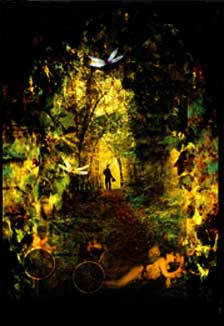 Demetrius and Lysander meet Helena and Hermia and the
love-comedy continues, with the men about to come to blows.
Oberon sees what has happened, and instructs Puck to
separate the two men, which he does using ventriloquism, and to apply
the love-juice to Demetrius's eyes.
Lysander is lost in the dark and decides to sleep it out.
Demetrius is tired
and rests, and Puck reapplies the antidote to Lysander.
Oberon applies the antidote to Titania.
Demetrius wakes up and falls in love
with Helena. After more dialogue and action, Theseus enters, the now properly-paired lovers
are united, and everybody is happy. The humans wonder
how much of the night's events have been real, and how much
was a dream. The laborers perform their
play-within-a-play. Although it's bad,
Theseus and the others appreciate the sincerity and effort.
Demetrius and Lysander meet Helena and Hermia and the
love-comedy continues, with the men about to come to blows.
Oberon sees what has happened, and instructs Puck to
separate the two men, which he does using ventriloquism, and to apply
the love-juice to Demetrius's eyes.
Lysander is lost in the dark and decides to sleep it out.
Demetrius is tired
and rests, and Puck reapplies the antidote to Lysander.
Oberon applies the antidote to Titania.
Demetrius wakes up and falls in love
with Helena. After more dialogue and action, Theseus enters, the now properly-paired lovers
are united, and everybody is happy. The humans wonder
how much of the night's events have been real, and how much
was a dream. The laborers perform their
play-within-a-play. Although it's bad,
Theseus and the others appreciate the sincerity and effort.
Don't look for depth of characterization in "A Midsummer Night's Dream". It's about ideas rather than personalities. Here are a few hints.
Theseus: Kind and generous. He must enforce the law, but talks privately with Egeus and Demetrius (I.i.115) to get them to relent. He appreciates the effort that goes into the play-within-a-play, and the sincerity of the ordinary people. He lets his imagination turn good people's sincere effort into a good performance.
Hippolyta: More literal-minded than Theseus. She cannot bring her imagination to consider a bad play good. But she notes that the lovers' tale of paranormal experience in the woods presents "great constancy" -- what paranormal investigators look for today. Like most of us, Hippolyta decides, "If they're all telling the same story, there may be something to it."
Philostrate: Master of ceremonies for Theseus. In Chaucer's The Knight's Tale, one of the rival lovers takes the name "Philostrate" to work for Theseus and Hippolyta. This is almost certainly an oblique reference to Chaucer's tale.
Demetrius: Not a nice person. By the time he says he wants to feed Lysander's carcass to his hounds, this seems completely in character. I don't know what Helena sees in him. Neither does she -- such is the irrationality of love, even before the lovers enter the forest. He is the only one who remains under the influence of the magic juice. This is probably good.
Helena: Tall, blonde beauty. Verbal abuse from Demetrius has made her think she's ugly. We have to hope that the love juice never wears off Demetrius, or she is in trouble
Hermia: Short, dark-complected beauty. Spunky and likable.
Lysander: Likable, rationalizer, sense of humor. He suggests Egeus and Demetrius get married. He cites classic stories as models for "the course of true love", and thinks the effects of the love juice are the workings of his own "reason".
Peter Quince: Playwright for the amateurs.
Nick Bottom the Weaver: Enthusiastic. Wants to play all the roles. Likes to overact.
Francis Flute the Bellows Mender: Young man. He points out that he's just getting his facial hair. He thinks this will make playing Thisbe a problem, but this is actually why he was chosen.
Robin Starveling the Tailor: Just a few lines portray a pessimist. He plays the part of the moon. He seems to forget his lines, and explains who he is in prose.
Snug the Joiner: "I am slow of study". The lion need only roar. Actually Snug does learn a few lines.
Tom Snout the Tinker: Literal-minded. Plays the wall.
Often the same actor who plays Theseus also plays Oberon, the same actor who plays Philostrate plays Puck, and the same actress who plays Hippolyta plays Titania. You may enjoy thinking about why this makes sense, especially if the dream-world is a shadow of ours. One of my correspondents reminded me that this also happens in the film version of "The Wizard of Oz".
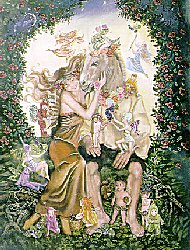 "A Midsummer Night's Dream" is unusual among Shakespeare's
plays in lacking a written source for its plot. The wedding
of Theseus and Hippolyta was described in Chaucer's "Knight's Tale"
and elsewhere. The theme of a daughter who wants to marry against
her father's desires was a common theme in Roman comedy. Bottom
and his friends are caricatures of amateur players.
"A Midsummer Night's Dream" is unusual among Shakespeare's
plays in lacking a written source for its plot. The wedding
of Theseus and Hippolyta was described in Chaucer's "Knight's Tale"
and elsewhere. The theme of a daughter who wants to marry against
her father's desires was a common theme in Roman comedy. Bottom
and his friends are caricatures of amateur players.
Shakespeare must have derived his forest spirits from oral folk traditions. The mysterious people of the forest might be in turn helpful (household chores), mischievous (pranks, illusions), or sinister. In "Henry IV Part I", the king relates a folk legend that "some night-tripping fairy" might steal babies and leave a fairy child or someone else's child (a "changeling", see II.i.23). People may have believed, or half-believed, in the fairies (elves, sprites, pixies, leprechauns, and so forth). "Goblin" was the name of a lesser devil in "Piers Plowman", and Puck's aliases include "Hob Goblin" (Robert Goblin). They might also have been imaginary figures of fun that personify nature, as we speak of "Mother Nature" and the artistic "Jack Frost", painter of autumn leaves and creator of the beautiful ice patterns on windowpanes.
Literary trips to fairyland included "Sir Orfeo", a retelling of Orpheus's descent to the underworld. Sir Orfeo visits a dreadful supernatural realm in which other humans are imprisoned, looking as they did at the moments of their deaths. "Thomas of Erceldoune" met the fairy queen, who took him to her realm, full of beautiful people living in luxury -- as Satan's cattle.
So far as I know, Shakespeare is the first writer to portray the faerie folk as tiny or cute.
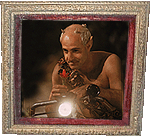 In the realm of illusion, notice several elements in which logic is
suspended in favor of symbolism, as in our own dreams.
In the realm of illusion, notice several elements in which logic is
suspended in favor of symbolism, as in our own dreams.
Nowadays, breaking theatrical illusion is a easy laugh. For example, in "The Hostage", Brendan Behan has characters say, "Silence! This is a serious play!", "That's the kind of joke this audience understands", and "That song has just about brought the show to a standstill." In Shakespeare, even "asides" are unusual, though he uses prologues as modern movies may begin with text or voiceover giving the background.
The key passage in the play is Theseus's speech on "the lunatic, the lover, and the poet" (V.i.5-22). Mentally ill people hallucinate, lovers see ugly people as beautiful, and poets create an imaginary world to give life to ideas ("giving to airy nothing a local habitation and a name"). Fear can make even a normal person in dim light can mistake a bush for a bear.
As you read the play, focus on the theme of how emotions, however irrational, color perception. Shakespeare is writing about how fantasy and imagination influence how we see the world, and how we see and behave toward each other.
In a freshman bull session in 1969, I was asked how a beautiful lady falling in love with a donkey-headed loud-mouthed fool related to anything at all. I had no good answer. Four years later -- after observing that the most socially successful among my classmates had been the do-nothings and the substance-abusers -- I could have answered eloquently. Hee-haw!
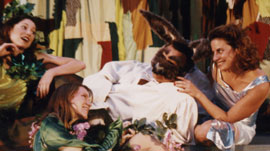
|
In "A Midsummer Night's Dream", imagination makes impossible things into reality.
|
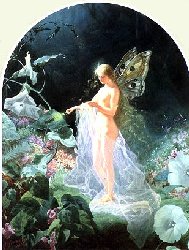 Somebody will probably tell you that Bottom is a parody of
Puritanism, the Elizabethan version of our own Christian Right.
These people sought to "purify" religious practice and popular
culture. One item on their political agenda was making theater
illegal.
The Puritans were unpopular with folks who liked
to go to Shakespeare's plays.
Shakespeare parodies Puritans elsewhere (do you
understand the joke in the opening line of Julius Caesar?)
The claim that Bottom is a caricature
of a Puritan rests on the following:
Somebody will probably tell you that Bottom is a parody of
Puritanism, the Elizabethan version of our own Christian Right.
These people sought to "purify" religious practice and popular
culture. One item on their political agenda was making theater
illegal.
The Puritans were unpopular with folks who liked
to go to Shakespeare's plays.
Shakespeare parodies Puritans elsewhere (do you
understand the joke in the opening line of Julius Caesar?)
The claim that Bottom is a caricature
of a Puritan rests on the following:
Christian Answers -- a conservative Christian site, praises "A Midsummer Night's Dream" for its family values.
I have had a dream, past the wit of man to say what dream it was: man is but an ass, if he go about to expound this dream.
-- Bottom
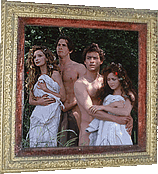 Don't look for a grand metaphysical theory or a system of right
living in "A Midsummer Night's Dream", or most other works by
Shakespeare. His work mirrors human experience.
Don't look for a grand metaphysical theory or a system of right
living in "A Midsummer Night's Dream", or most other works by
Shakespeare. His work mirrors human experience.We will probably not meet Puck and his supernatural companions when we go into the woods. But when we fall in love, or go crazy, or do creative writing, or fall asleep and dream, we enter the realm of the imagination. This happens even when we choose -- as Theseus does -- to look beyond performance at intention.
Even if we pride ourselves (as Lysander does) on being "rational", there are important facets of our humanity that are both non-rational and beyond our control. "A Midsummer Night's Dream" celebrates this essential fact of life.
To include this page in a bibliography, you may use this format: Friedlander ER (1999) Enjoying "A Midsummer Night's Dream" by William Shakespeare Retrieved Dec. 25, 2003 from http://www.pathguy.com/mnd.htm
For Modern Language Association sticklers, the name of the site itself is "The Pathology Guy" and the Sponsoring Institution or Organization is Ed Friedlander MD.
Text
Online Edition -- by my good internet friend Philip Weller Background, Sources, and Ideas
No Fear -- text along with 21st-century English translation Nada Study Guide Book Rags -- a good "topic tracking" section, especially the theme of "love's foolishness" Sir Orfeo Sandman -- Neil Gaiman's brilliant graphic fiction series. The King of Dreams commissions "A Midsummer Night's Dream" and "The Tempest" and in return grants Shakespeare the power to shape the thinking and dreams of future generations. |  |
Videos:
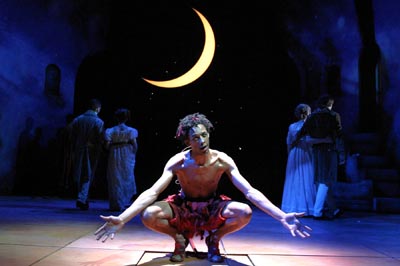
| Productions
Citizens National Bank -- Ever have a girl chase you into the woods? Ever been in love with an ass? Classic Book Illustrations Patrick Stewart as Oberon Kirkstall Abbey Carlton -- lots of humor on this site Sixty-Second Midsummer |
And So Forth
This essay is being offered for sale
by at least two websites set up for students
who for whatever reason do not want to write their own papers.
I have received no response to my protests.
Teachers: Click here
to begin your search for online essays intended for would-be plagiarists.
"Dishonesty was your tragic flaw, kid!" Good luck.
turnitin.com -- anti-plagiary software
Students: If your teacher is at all computer-savvy,
and you turn in a paper that you took for free off the "web", you will
be caught. Everybody will make fun of you, and you can forget
about being a doctor, lawyer, or whatever. That'll be your
"tragic flaw." Ha ha!
Plagtracker.com -- a new, free plagiary-catcher service
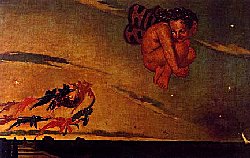
|
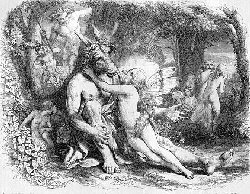
|
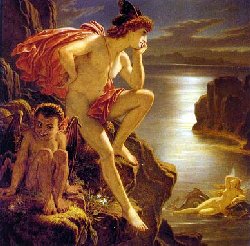
|
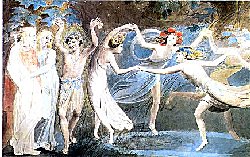
|
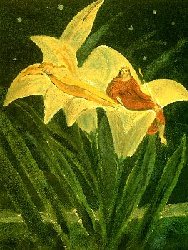
|
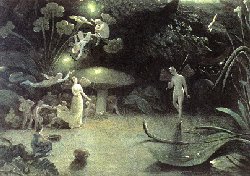
|
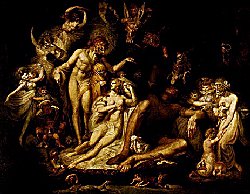
|
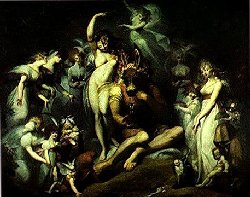
|
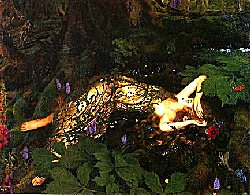
|
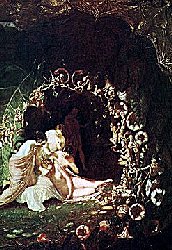
|
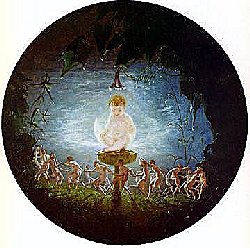
|
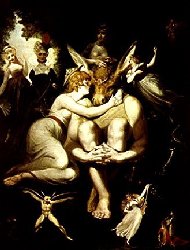
|
shakespeare.about.com --
lots of good contemporary essays.
Absolute Shakespeare. Good introductions!
.
Teachers: Click here
to begin your search for online essays intended for would-be plagiarists.
"Dishonesty was your tragic flaw, kid!" Good luck.
 To the best of my knowledge, all the links
on my literature pages are to free sites. In August 2000, the operator of
the large for-profit help-with-homework online Shakespeare site offered to
buy these pages out "for a price in the low four figures." I refused,
and the site owner replied that "I wish you would just close down the
domain and spare everybody from a lot of wasted time. It's a shame."
This site will always remain free, to help everybody enjoy the
works that I have, myself, enjoyed so much. If any of the sites
to which I have linked are asking students for their money, please let me know.
To the best of my knowledge, all the links
on my literature pages are to free sites. In August 2000, the operator of
the large for-profit help-with-homework online Shakespeare site offered to
buy these pages out "for a price in the low four figures." I refused,
and the site owner replied that "I wish you would just close down the
domain and spare everybody from a lot of wasted time. It's a shame."
This site will always remain free, to help everybody enjoy the
works that I have, myself, enjoyed so much. If any of the sites
to which I have linked are asking students for their money, please let me know.
 Words and phrases by Shakespeare -- under development
Words and phrases by Shakespeare -- under development
Antony & Cleopatra -- just getting started
Hamlet
King Lear
Julian of Norwich
La Belle Dame Sans Merci
The Lady of Shalott
Macbeth
Moby Dick
Oedipus the King
Prometheus Bound
The Book of Thel
The Knight's Tale
The Seven Against Thebes
The Tyger
Timbuctoo
Twelfth Night
|
I've received several requests for my thoughts on Othello,
and wish I had time to put something together. For now, if you're asked to
write on the play, here are two ideas.
(1) Look at the short story that provided the plot (click here or here), and notice how Shakespeare has portrayed racism as it really is in our world. Ordinary decent folks (i.e., the Venetian government) care only who a person is and what that person can do. They consider Brabantio a jerk for accepting a person of another race as a friend but not as a son-in-law. Iago, who for whatever reason has a chip on his shoulder, spews racial venom for his own dark reasons. Desdemona is originally frightened by someone who looks different, but quickly learns to love that person so that race become indifferent. (2) It is very common for special-forces operatives who return to civilian life and/or who try to sustain a marriage to have terrible difficulties. Those who are successful deserve our special admiration. Too many become terribly confused and end up in self-destructive behaviors, both loving and hating. It's one of our world's strangest ironies that romantic love is more treacherous and incomprehensible than war. |

|
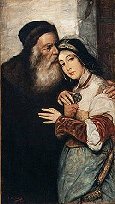 | Likewise, it'll be a while before I can put anything online about "The Merchant of Venice." I do want to take a minute to ask people considering Shakespeare's presentation of Shylock to consider his era. In all but Shakespeare's earliest plays, our sympathies are always divided. Shakespeare's English contemporaries would seldom or never see a real Jew (they had been expelled from England in 1280), and the "stage Jew" of the time was an evil, comic figure. Nevertheless, Shakespeare is the first writer to present a Jew as a human being. And it is easy to understand why Shylock is bitter and angry. Even at the beginning, the protagonists of the play talk trash to him simply because he is a Jew, obviously without even thinking. It's impossible not to notice this. They invite Shylock to their party simply so that his daughter can rob him, and afterwards they are only amused when his feelings are trampled. The play is actually about anger -- and Shakespeare has chosen a Jew to represent somebody who is right to be angry. This is more than a progressive choice -- it must have taken a great deal of courage. Defending himself, Shylock points out the evils of slavery, which the Jews did not practice but which was accepted at the time by some Christians. (It was illegal in Shakespeare's England but would soon re-emerge in the colonies.) The most famous speech ("The quality of mercy...") anticipates what I've found to be Shakespeare's greatest theme, i.e., in a godless universe, our only hope is to be kind to one another. No matter what your grievance is, why not be the first to take the brave step to end the stupid hatreds that darken our world? |
| Shakespeare's "Romeo and Juliet" may have been spoiled for you as required reading in high school, and/or by parodies of the balcony scene and/or a bad (left-wing, right-wing) college "Western Civ" course. Think: The play's about godawful teenaged murder-suicide. (Juliet is 14, Romeo 16.) Shakespeare's plot-source was a warning to teenagers to obey their parents. The themes of the play, which were pretty-much new with Shakespeare and very radical in his time, are (1) young people ought to be allowed to marry for love, not just whoever their parents choose for them; (2) young people's tragedies likely result from their parents' stupidity and meanness; (3) love matures people, and gives dignity, meaning, and beauty even in the worst of circumstances. By the way, did you notice that Papa Capulet is an old guy ("past [his] dancing days", thirty years since he was "in a mask"), but Mama Capulet was pregnant with Juliet at age 13. In other words, she was the old lecher's forced child-bride and she is setting up the same thing for Juliet. Forced marriage is still common (and the typical cause for a young girl's suicide) in much of our world. Did you notice that the Capulets are not terribly surprised to find Juliet dead on her wedding day? The fact that forced marriage is illegal in the United States and England may be due, at least in part, to the fact that we listened when Shakespeare showed us who we are. | 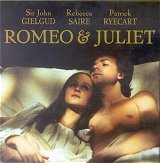 |

 I'm Ed. I'm an MD, a
pathologist in Kansas City,
a mainstream Christian.
a modernist, a
skydiver, an adventure gamer,
the world's busiest free
internet physician,
and a man who still
enjoys books and ideas. I try to live clean, and I prefer
"single blessedness."
I'm Ed. I'm an MD, a
pathologist in Kansas City,
a mainstream Christian.
a modernist, a
skydiver, an adventure gamer,
the world's busiest free
internet physician,
and a man who still
enjoys books and ideas. I try to live clean, and I prefer
"single blessedness."
Some adults have seen
possible source material for this play
in Ezekiel 16:26 and Ezekiel 23:20.
I don't think this is true. You can decide for yourself.
Not all Bibles translate these verses literally.
One very clever student pointed out to me that Bottom's speech
about a tyrant describes Macbeth, and Macbeth's speech about
"a poor player" describes Bottom!
Visit my home page
Click here to see the author's friend, Dr. Ken Savage,
do it right.
Theseus reappears in the
novel, Pages
of Pain, from the Planescape
series. Theseus is sent by the Greek gods to
find the source of suffering and of the
diverse interpretations
that gods and humans give to it. Like "A Midsummer
Night's Dream", the series uses traditional folklore
to present philosophic questions
that have no obvious
final answers.
I hope you like "A Midsummer Night's Dream", and that I've been of some help.
E-mail me
Brown University,
Department of English -- my home base, 1969-1973.
Fellow English majors -- Okay, okay, I know the commas are "supposed" to go inside the
quotation marks and parentheses. This became standard to protect fragile bits of movable type. My practice lets me know I'm the one who's
typed a particular document.

Travis Morgan -- gym buddy, skydiver, long-term friend --
has a new site to help ordinary folks catch computer misbehavior.

Taser Video
83.4 MB
7:26 min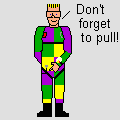
Click here to
see the author prove you can have fun skydiving without being world-class.
| New visitors to www.pathguy.com reset Jan. 30, 2005: |
Teens:
Stay away from drugs, work yourself extremely hard in class or
at your trade, play sports if and only if you like it,
and get out of abusive relationships by any means.
If the grown-ups who support you are "difficult", act
like you love them even if you're not sure that you do.
It'll help you and them.
The best thing anybody can say about you is, "That kid likes to
work too hard and isn't taking it easy like other young people." Health and friendship.

